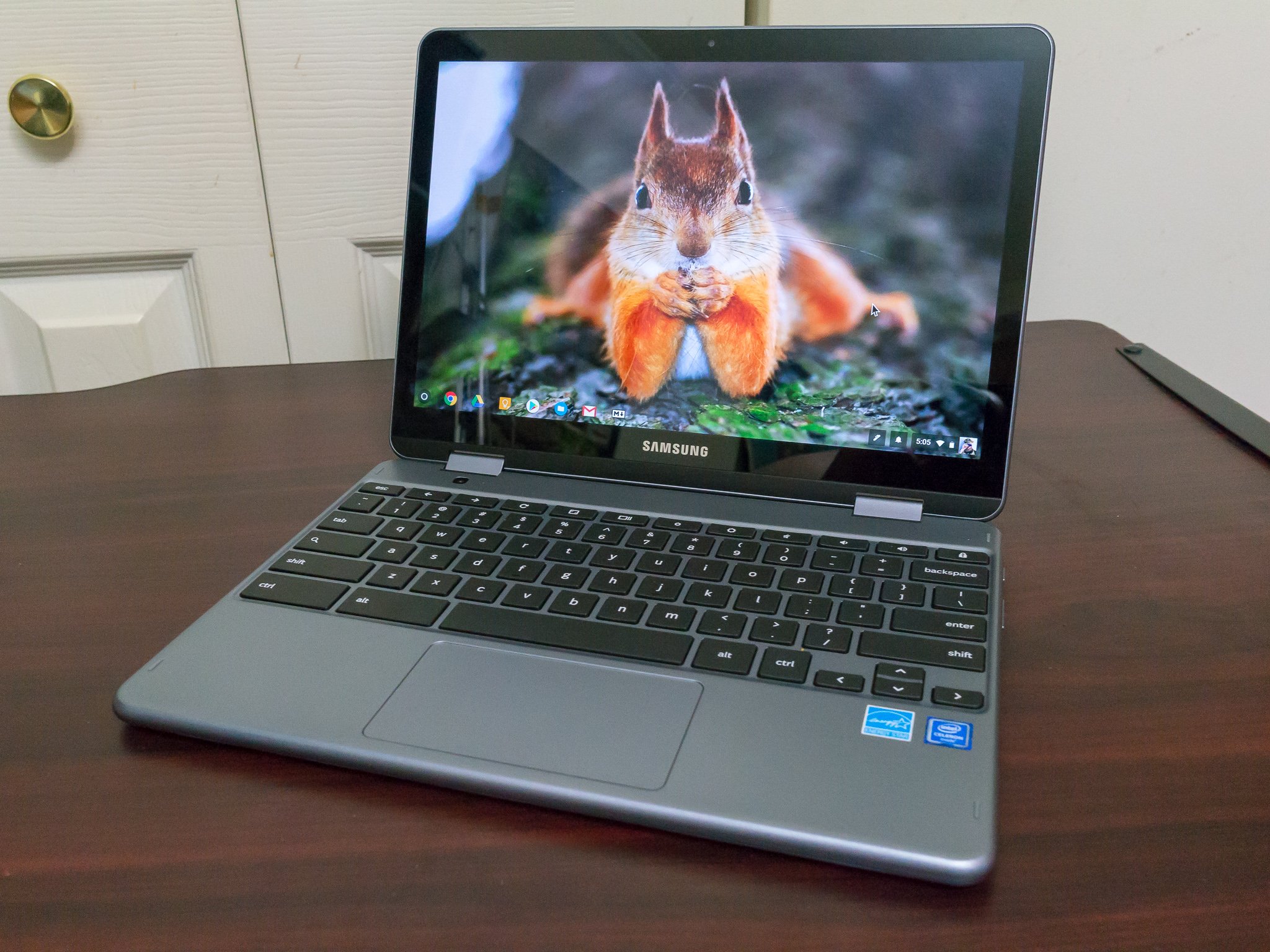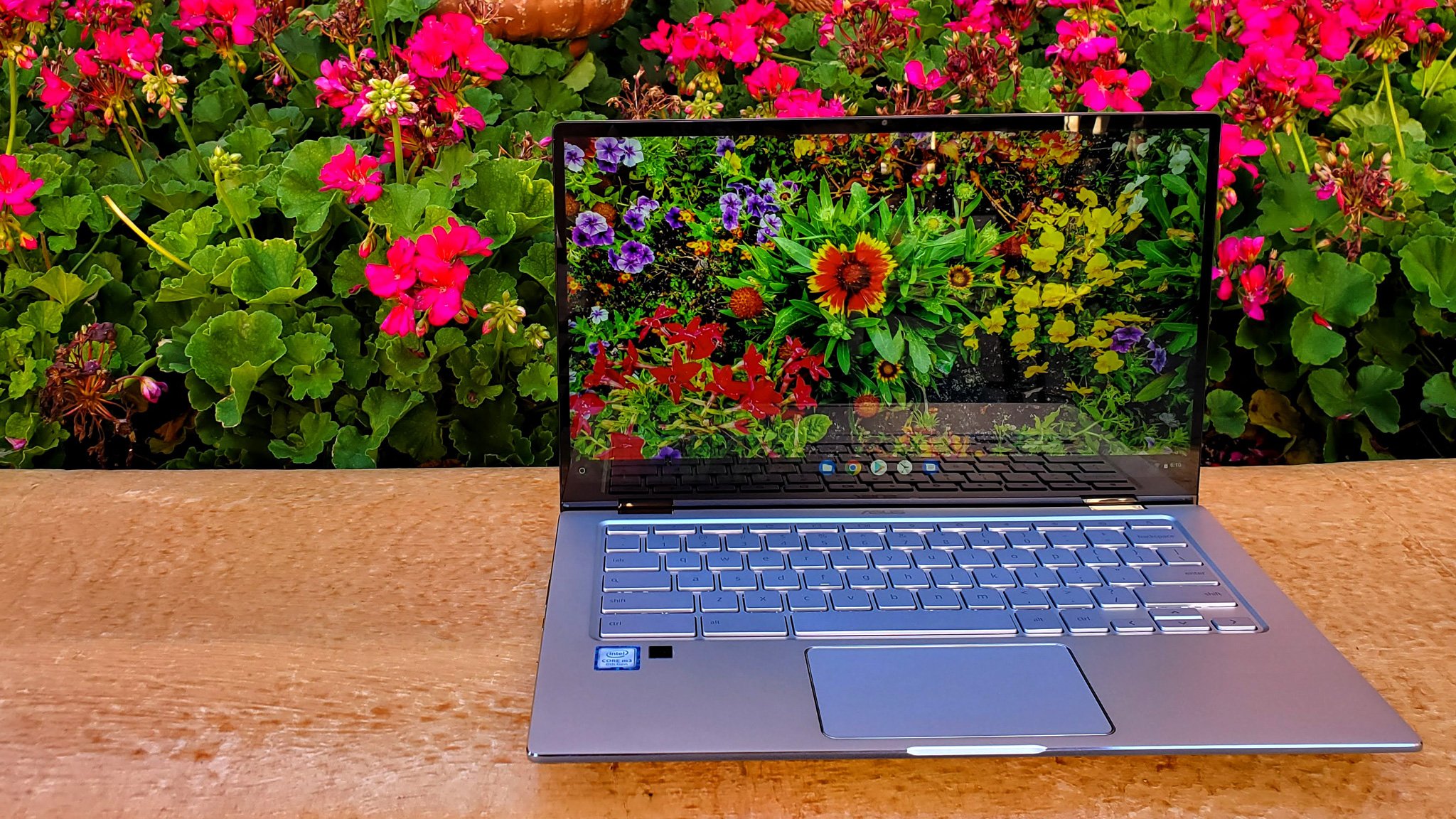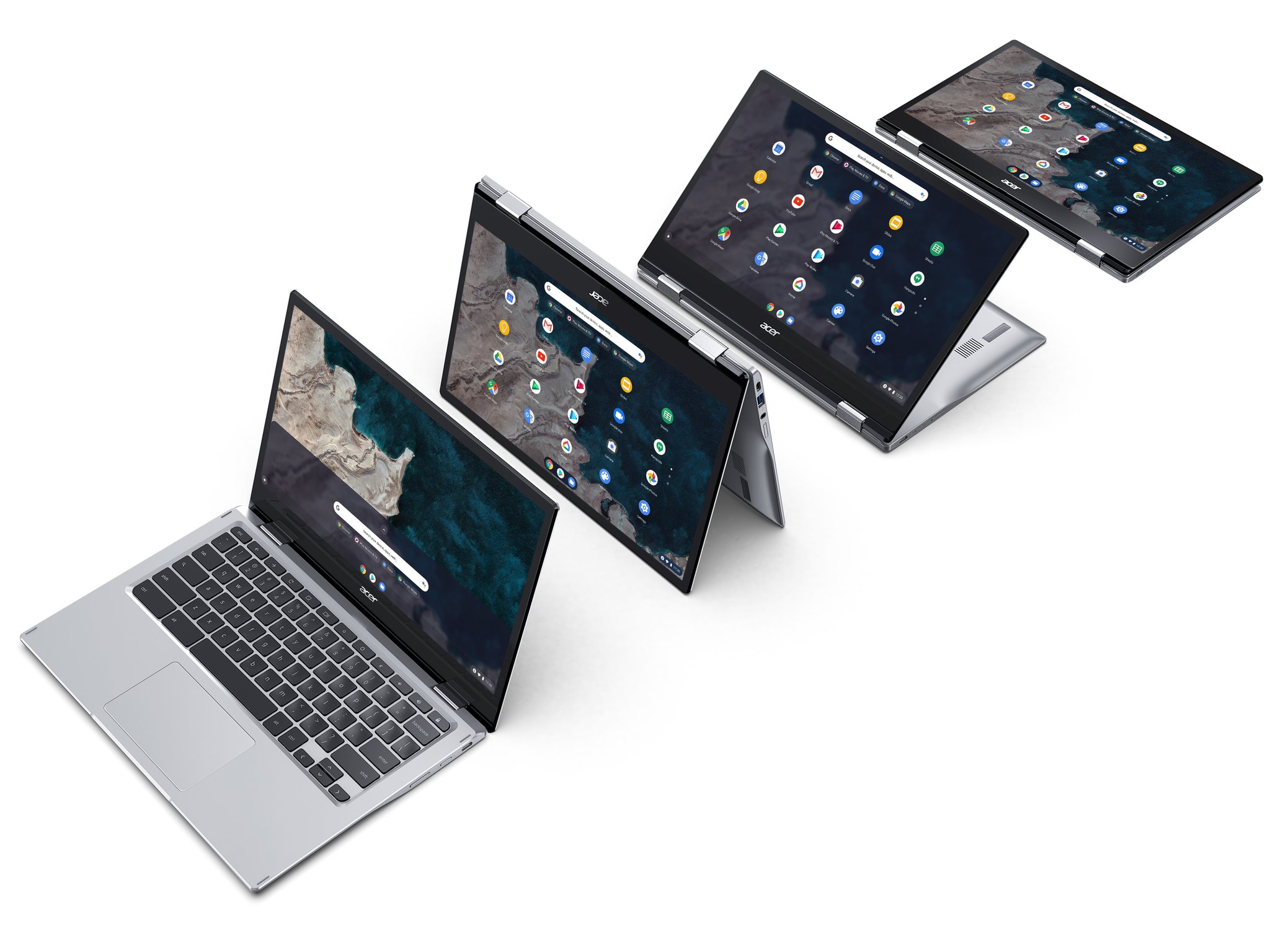Better battery life and connectivity options are exactly what Chromebooks need.
Acer has finally unveiled the first Snapdragon-powered Chromebook with the upcoming Spin 513 series. It's kind of exciting if you're a fan of Chromebooks — or even of mobile tech in general — because it's more than likely going to be the first of many. It just might also be something that changes who buys a Chromebook and how we use them.
The Spin 513 isn't using a specially-built Snapdragon chip; it has the same off-the-shelf Snapdragon 7c we've seen in Windows ARM 2-in-1s. That's not a bad thing because a Chromebook doesn't really need any specially designed ARM chip, at least not right now.
The Snapdragon brings two awesome things to the Spin 513: extra-long battery life and LTE connectivity. I'd argue that these are the most important upgrades for any Chromebook because they are designed to be mobile. Chromebooks tend to be light — both in weight and in specs — and portable so you can take and use them anywhere. This also keeps the prices in check, which is why you can buy a great Chromebook for school that doesn't cost an arm and a leg. A Snapdragon chip takes this idea and runs with it.
Of course, this isn't the first ARM-powered Chromebook nor is it the first LTE-enabled Chromebook. About half of the available models come with ARM chips from companies like MediaTek or Rockchip, and Chrome OS has been optimized for these devices to run fairly well on some very anemic hardware. And we've seen LTE Chromebooks from Samsung, HP, and even Google themselves, but they seem to have fallen out of fashion.
Nobody does cellular like Qualcomm.
A Snapdragon Chromebook is different, though. Your LTE connection is going to be top-notch because nobody does LTE (in North America, especially) like Qualcomm does. Love or hate Qualcomm for some of its business practices, you can't deny how great the company's cellular connectivity and RF system is. It's simply the best in the business.
Qualcomm has integrated LTE in a way that has much less impact on battery life than any other company. Combine this with the chip optimization from Android device makers and we have seen insane battery life from our phones. Now the race is on to do the same for Chromebooks.
14-hour battery life in tests translates into 8 or 9 hours of real work with an LTE connection.
Acer rates the Spin 513's battery life at up to 14 hours. Surely this is under ideal conditions and not using the LTE connection. I'd imagine that means you can be using it normally via cellular connection for 8-9 hours straight if you watch the screen brightness. That's ... mouthwatering to a Chromebook user.
This is where the room for optimization is, both from Qualcomm and from Google. I suspect we will see a Chromebook-optimized Snapdragon if the idea proves popular enough, but it doesn't have to come from Qualcomm, In fact, I'd say the best way to do things is let Qualcomm keep developing Snapdragon chips for Windows laptops — which it does a great job at — and let Google do the work to mate them to Chrome OS.
 The Samsung Chromebook Plus with LTE
The Samsung Chromebook Plus with LTE
If you could get the Spin 513 right now, some features just aren't going to work perfectly or at all. You need an Intel processor to use Parallels for the enterprise in order to run Windows apps. Linux application support is optimized for Chromebooks with ARM chips, but of the MediaTek variety. Your Android apps will, of course, work fine on Snapdragon's core feature set unless Chrome gets in the way somehow. I'm betting it won't.
Google needs to optimize Chrome OS for the Snapdragon c series instead of Snapdragon optimizing the chip for Chrome. It just makes sense.
I'm not sure if we'll ever see Parallels for ARM-powered Enterprise Chromebooks, but looking at Windows laptops using the same chip, it's technically possible. That will depend on Parallels and Google working things out and evaluating the performance. The same goes for using Linux applications inside Chrome — any glitches or interoperability problems are best worked out by Google. If Qualcomm follows the known roadmap for ARM Windows chips, Google knows just what it needs to do.
All I know for sure is that I want someone to do it and give us more Snapdragon-powered models with LTE support in the future. Quick pairing with a Pixel phone for a data connection was a great idea. But not having to pair at all and have an on-demand LTE connection that's smart enough to sleep when it's not needed is a far better idea and makes a Chromebook much more attractive to the 99% of smartphone users who didn't buy a Pixel.
A Chromebook with an always-on feature is a very different beast, and I really miss having one; I used the Google Chromebook Pixel far longer than I would have if it didn't have LTE. Having an LTE Chromebook with Android apps might make the Acer Chromebook Spin 513 the Chromebook to buy in 2021.
Need something now?
Acer Chromebook Spin 713
From $700 at Amazon $630 at Best Buy
The beauty is a beast in the power department.
If you're someone who loves a 3:2 screen and a big, beefy processor to power it, this Project Athena Chromebook is for you. It's got a bigger price tag than the 513, but it's got more ports and more power to justify the upgrade.
Source: androidcentral


